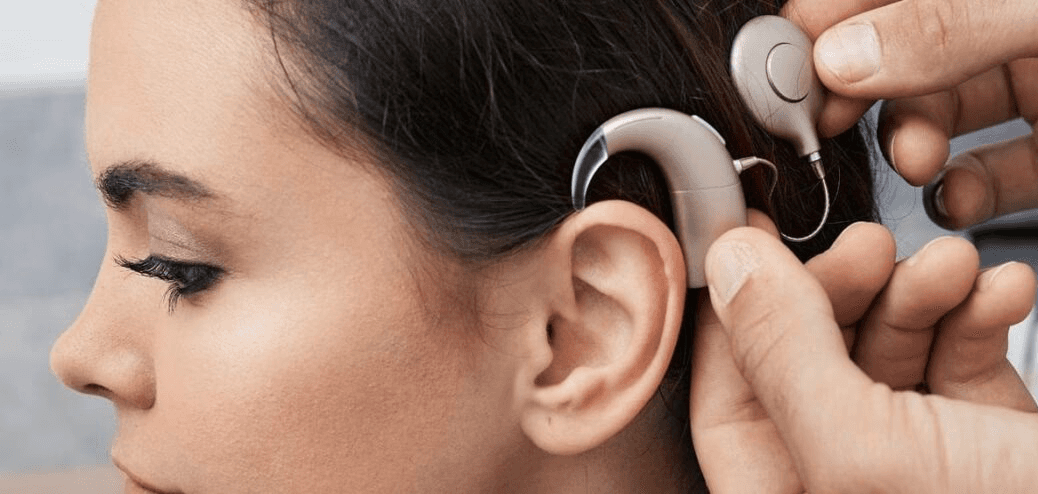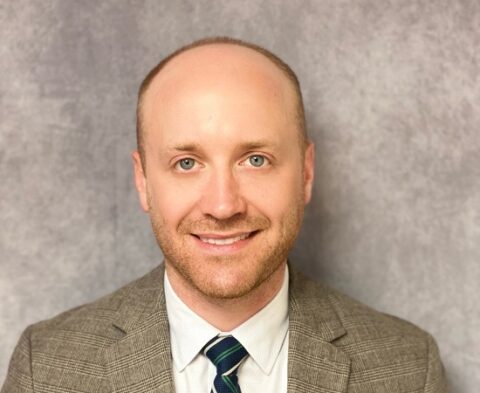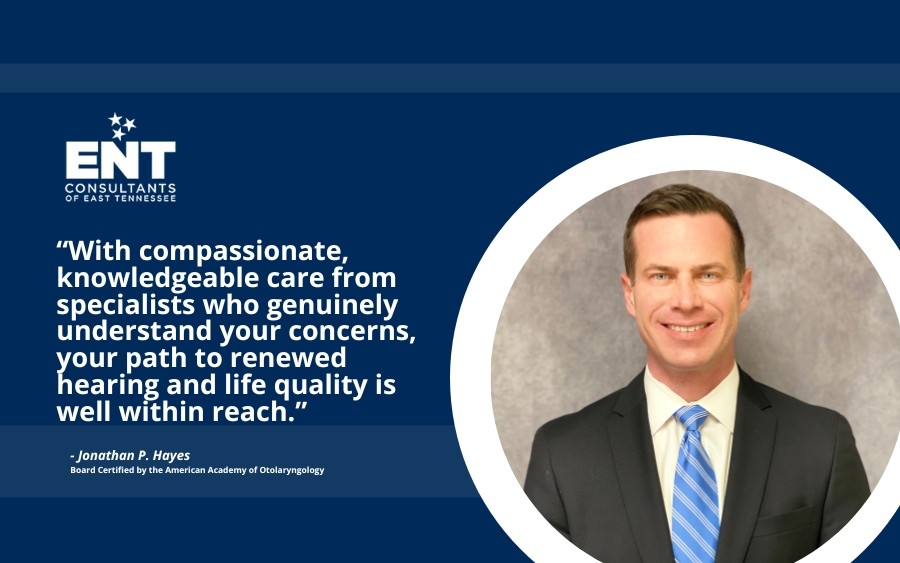
The Premier Cochlear Implant Center in East Tennessee
As East Tennessee’s most trusted otolaryngology specialists, we’ve had the pleasure of helping thousands of local people discover better ear, nose, and throat health. When patients visit us concerned with their hearing health, it’s often after they’ve already exhausted the option of using hearing aids – the severity of their hearing loss is usually too significant for hearing aids to offer effective treatment.

The Premier Cochlear Implant Center in East Tennessee
As East Tennessee’s most trusted otolaryngology specialists, we’ve had the pleasure of helping thousands of local people discover better ear, nose, and throat health. When patients visit us concerned with their hearing health, it’s often after they’ve already exhausted the option of using hearing aids – the severity of their hearing loss is usually too significant for hearing aids to offer effective treatment.

The Premier Cochlear Implant Center in East Tennessee
As East Tennessee’s most trusted otolaryngology specialists, we’ve had the pleasure of helping thousands of local people discover better ear, nose, and throat health. When patients visit us concerned with their hearing health, it’s often after they’ve already exhausted the option of using hearing aids – the severity of their hearing loss is usually too significant for hearing aids to offer effective treatment.
Frequently Asked Questions
What Is a Cochlear Implant?
A cochlear implant is a device that is implanted into the inner ear that directly stimulates the hearing nerve. Cochlear implants are designed to help restore hearing when traditional hearing aids are no longer able to help due to the severity of hearing loss.
What Is a Cochlear Implant?
A cochlear implant is a device that is implanted into the inner ear that directly stimulates the hearing nerve. Cochlear implants are designed to help restore hearing when traditional hearing aids are no longer able to help due to the severity of hearing loss.
What Is a Cochlear Implant?
A cochlear implant is a device that is implanted into the inner ear that directly stimulates the hearing nerve. Cochlear implants are designed to help restore hearing when traditional hearing aids are no longer able to help due to the severity of hearing loss.
How Does a Cochlear Implant Work?
How Does a Cochlear Implant Work?
How Does a Cochlear Implant Work?
Who is a Good Candidate for Cochlear Implants?
Who is a Good Candidate for Cochlear Implants?
Who is a Good Candidate for Cochlear Implants?
What Does the Surgery Procedure Involve?
What Does the Surgery Procedure Involve?
What Does the Surgery Procedure Involve?
What to Expect After a Cochlear Implant Surgery?
What to Expect After a Cochlear Implant Surgery?
What to Expect After a Cochlear Implant Surgery?
How Will Things Sound with a Cochlear Implant?
How Will Things Sound with a Cochlear Implant?
How Will Things Sound with a Cochlear Implant?
Meet Your Cochlear Implant Specialist



Jameson K. Mattingly, M.D.
Dr. Mattingly’s clinical focus involves all aspects of the ear, including diseases of hearing, balance, infections, and the skull base. He has published several articles and book chapters pertaining to these areas and is active in various societies across the country. He is very passionate about his area of expertise, as hearing and balance are integral parts of a person’s well-being.
Board Certified: Neurotologist
Board Certified: American Academy of Otolaryngology – Head and Neck Surgery
Undergraduate Education
Western Kentucky University, Bowling Green, KY
Medical School
Doctor of Medicine
University of Louisville School of Medicine, Louisville, KY
Residency
Otolaryngology – University of Colorado School of Medicine, Aurora, CO Fellowship
Neurotology-The Ohio State University-Columbus, OH
Think You’re a Cochlear Implant Candidate?
If you or a loved one is considering cochlear implants as your next step toward better hearing, we’d love to help you discover the right solution for you.
Our team has significant experience helping patients throughout East Tennessee with all varieties of hearing issues, and we are currently the only place in the area offering this full service. Choosing a professional to support you on your journey to better health is the best first step to ensuring the outcome is one that serves you best.
To schedule a no-obligation consultation with one of our experts, please fill out the form on this page and we’ll call you to confirm your appointment shortly.
Think You’re a Cochlear Implant Candidate?
If you or a loved one is considering cochlear implants as your next step toward better hearing, we’d love to help you discover the right solution for you.
Our team has significant experience helping patients throughout East Tennessee with all varieties of hearing issues, and we are currently the only place in the area offering this full service. Choosing a professional to support you on your journey to better health is the best first step to ensuring the outcome is one that serves you best.
To schedule a no-obligation consultation with one of our experts, please fill out the form on this page and we’ll call you to confirm your appointment shortly.
Think You’re a Cochlear Implant Candidate?
If you or a loved one is considering cochlear implants as your next step toward better hearing, we’d love to help you discover the right solution for you.
Our team has significant experience helping patients throughout East Tennessee with all varieties of hearing issues, and we are currently the only place in the area offering this full service. Choosing a professional to support you on your journey to better health is the best first step to ensuring the outcome is one that serves you best.
To schedule a no-obligation consultation with one of our experts, please fill out the form on this page and we’ll call you to confirm your appointment shortly.
Meet Your Providers

Jonathan P. Hayes, M.D.
Board Certified: American Academy of Otolaryngology - Head and Neck Surgery

S. Mark Overholt, M.D.
Board Certified: American Academy of Otolaryngology - Head and Neck Surgery

Nicholas J. Panella, M.D.
Board Certified: American Academy of Otolaryngology - Head and Neck Surgery

David G. Sexton, M.D.
Board Certified: American Academy of Otolaryngology - Head and Neck Surgery

Stephen A. Wheless, M.D.
Board Certified: American Academy of Otolaryngology - Head and Neck Surgery

Jameson K. Mattingly, M.D.
Board Certified: Neurotologist Board Certified: American Academy of Otolaryngology - Head and Neck Surgery

Jaron Densky, M.D.
Board Certified: American Academy of Otolaryngology - Head and Neck Surgery Physician of Excellence - Inspire Sleep Apnea Therapy

Jay M. Andross, FNP
Family Nurse Practitioner National Certification through American Association of Nurse Practitioners

Meade Edmunds, M.D.
Board Certified: American Academy of Otolaryngology – Head and Neck Surgery

Michael Larkner, FNP
Family Nurse Practitioner National Certification through American Association of Nurse Practitioners
Meet Your Providers

Jonathan P. Hayes, M.D.
Board Certified: American Academy of Otolaryngology - Head and Neck Surgery

S. Mark Overholt, M.D.
Board Certified: American Academy of Otolaryngology - Head and Neck Surgery

Nicholas J. Panella, M.D.
Board Certified: American Academy of Otolaryngology - Head and Neck Surgery

David G. Sexton, M.D.
Board Certified: American Academy of Otolaryngology - Head and Neck Surgery

Stephen A. Wheless, M.D.
Board Certified: American Academy of Otolaryngology - Head and Neck Surgery

Jameson K. Mattingly, M.D.
Board Certified: Neurotologist Board Certified: American Academy of Otolaryngology - Head and Neck Surgery

Jaron Densky, M.D.
Board Certified: American Academy of Otolaryngology - Head and Neck Surgery Physician of Excellence - Inspire Sleep Apnea Therapy

Jay M. Andross, FNP
Family Nurse Practitioner National Certification through American Association of Nurse Practitioners

Meade Edmunds, M.D.
Board Certified: American Academy of Otolaryngology – Head and Neck Surgery

Michael Larkner, FNP
Family Nurse Practitioner National Certification through American Association of Nurse Practitioners
Meet Your Providers

Jonathan P. Hayes, M.D.
Board Certified: American Academy of Otolaryngology - Head and Neck Surgery

S. Mark Overholt, M.D.
Board Certified: American Academy of Otolaryngology - Head and Neck Surgery

Nicholas J. Panella, M.D.
Board Certified: American Academy of Otolaryngology - Head and Neck Surgery

David G. Sexton, M.D.
Board Certified: American Academy of Otolaryngology - Head and Neck Surgery

Stephen A. Wheless, M.D.
Board Certified: American Academy of Otolaryngology - Head and Neck Surgery

Jameson K. Mattingly, M.D.
Board Certified: Neurotologist Board Certified: American Academy of Otolaryngology - Head and Neck Surgery

Jaron Densky, M.D.
Board Certified: American Academy of Otolaryngology - Head and Neck Surgery Physician of Excellence - Inspire Sleep Apnea Therapy

Jay M. Andross, FNP
Family Nurse Practitioner National Certification through American Association of Nurse Practitioners

Meade Edmunds, M.D.
Board Certified: American Academy of Otolaryngology – Head and Neck Surgery

Michael Larkner, FNP
Family Nurse Practitioner National Certification through American Association of Nurse Practitioners
Latest News
Patient Resources

|
|
Jan 14, 2026
Tinnitus can be stressful and difficult to understand, but a thorough evaluation can provide clarity. Same-day hearing testing allows patients to see results immediately and understand what is happening. Care focuses on clear explanations and evidence-based guidance without unnecessary interventions. This approach helps patients leave reassured, informed, and confident about managing their hearing health.

|
Jonathan P. Hayes
|
Dec 4, 2025
Craig’s journey began with a gradual change that many can relate to. “I first became concerned about the gradual deterioration of my hearing, which I had put off addressing for a few years until it became more of a problem.” Like many facing hearing health challenges, Craig was initially hesitant to face what he considered a manageable issue.
Latest News
Patient Resources

|
|
Jan 14, 2026
Tinnitus can be stressful and difficult to understand, but a thorough evaluation can provide clarity. Same-day hearing testing allows patients to see results immediately and understand what is happening. Care focuses on clear explanations and evidence-based guidance without unnecessary interventions. This approach helps patients leave reassured, informed, and confident about managing their hearing health.

|
Jonathan P. Hayes
|
Dec 4, 2025
Craig’s journey began with a gradual change that many can relate to. “I first became concerned about the gradual deterioration of my hearing, which I had put off addressing for a few years until it became more of a problem.” Like many facing hearing health challenges, Craig was initially hesitant to face what he considered a manageable issue.
Latest News
Patient Resources

|
|
Jan 14, 2026
Tinnitus can be stressful and difficult to understand, but a thorough evaluation can provide clarity. Same-day hearing testing allows patients to see results immediately and understand what is happening. Care focuses on clear explanations and evidence-based guidance without unnecessary interventions. This approach helps patients leave reassured, informed, and confident about managing their hearing health.

|
Jonathan P. Hayes
|
Dec 4, 2025
Craig’s journey began with a gradual change that many can relate to. “I first became concerned about the gradual deterioration of my hearing, which I had put off addressing for a few years until it became more of a problem.” Like many facing hearing health challenges, Craig was initially hesitant to face what he considered a manageable issue.

Trusted by Tens of Thousands of Patients as East Tennessee’s Premier Otolaryngology Practice for Over 45 Years

Trusted by Tens of Thousands of Patients as East Tennessee’s Premier Otolaryngology Practice for Over 45 Years

Trusted by Tens of Thousands of Patients as East Tennessee’s Premier Otolaryngology Practice for Over 45 Years

